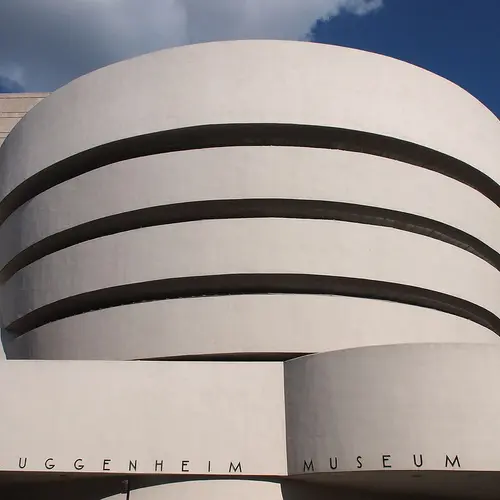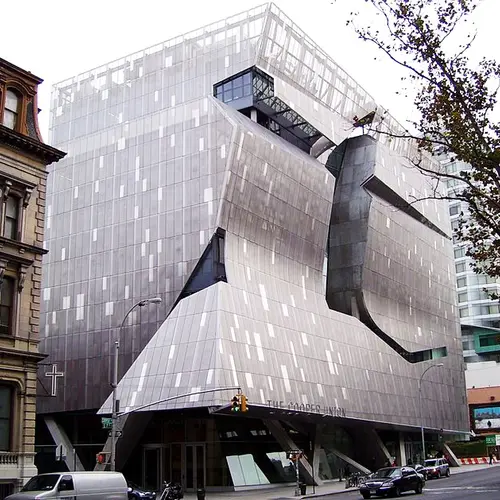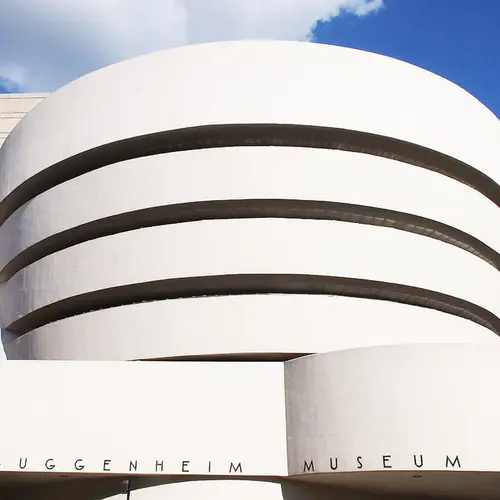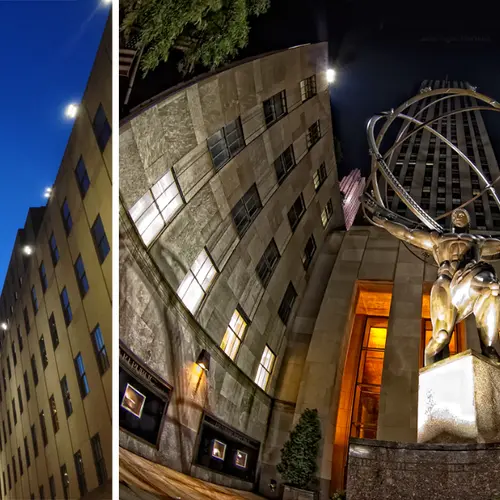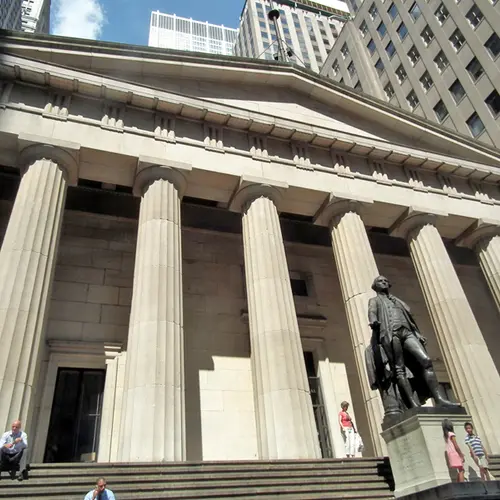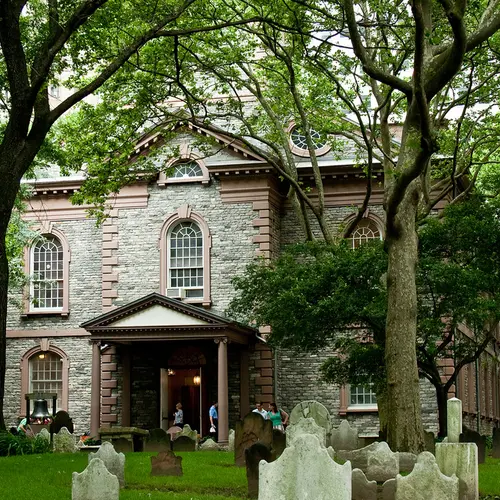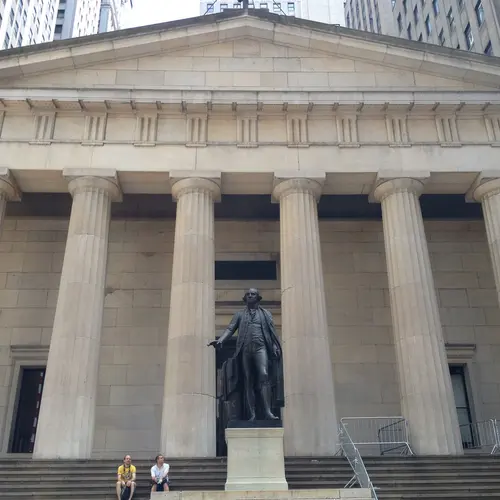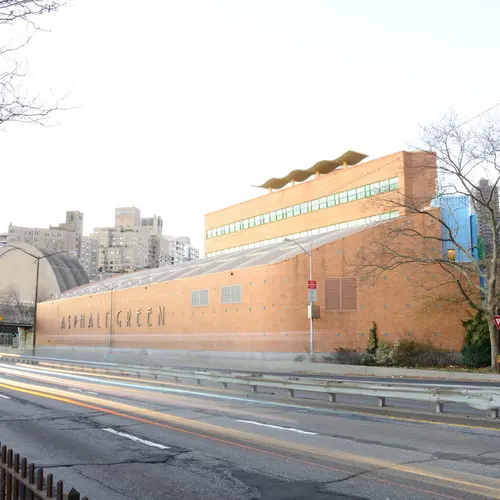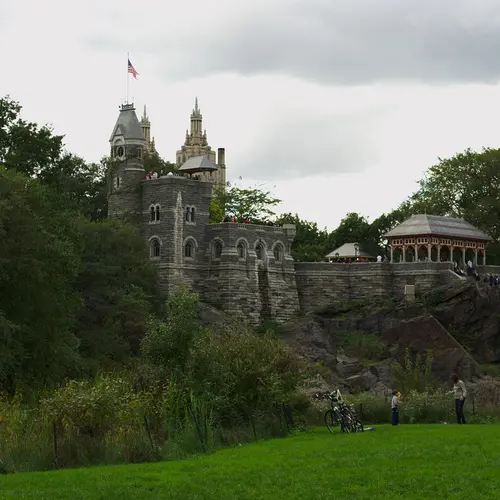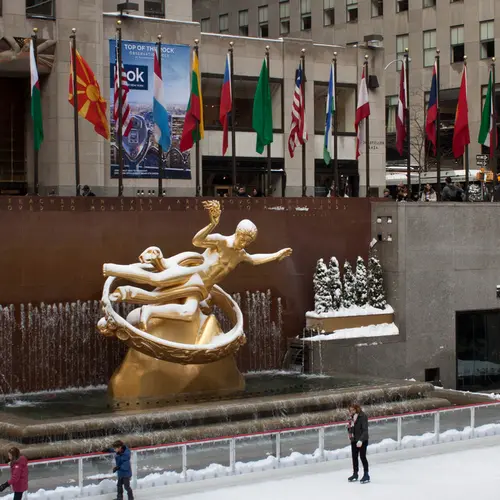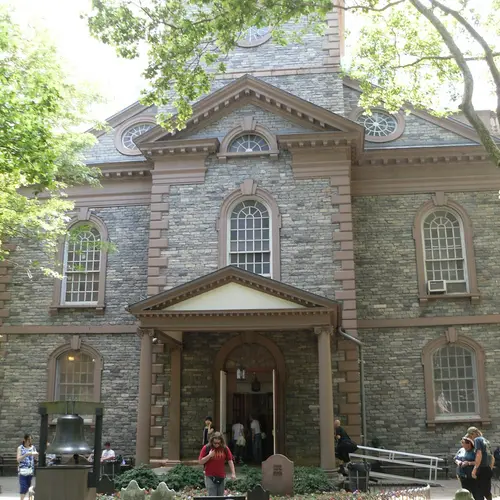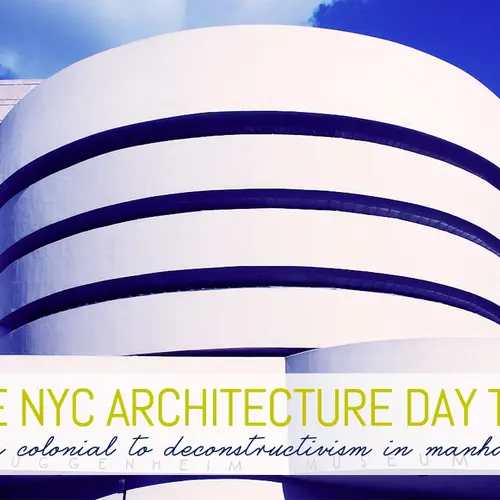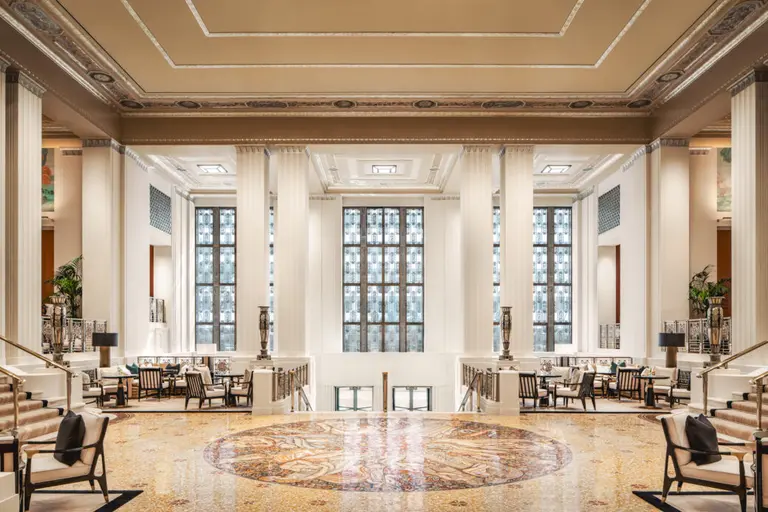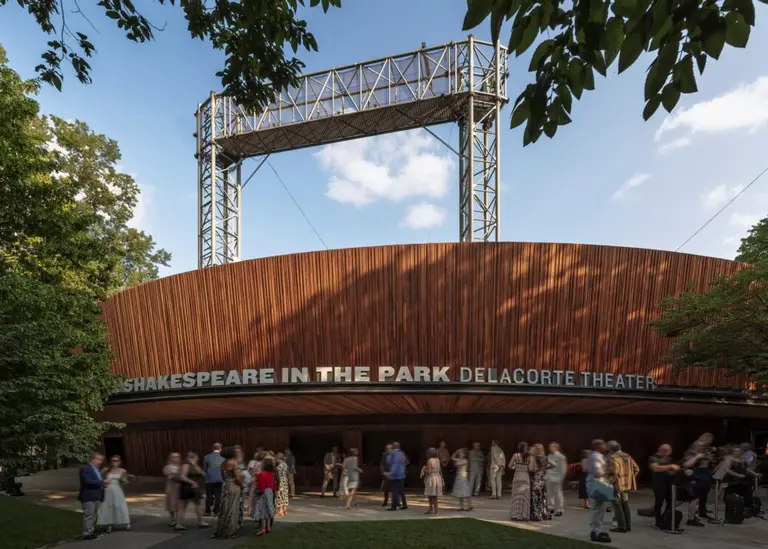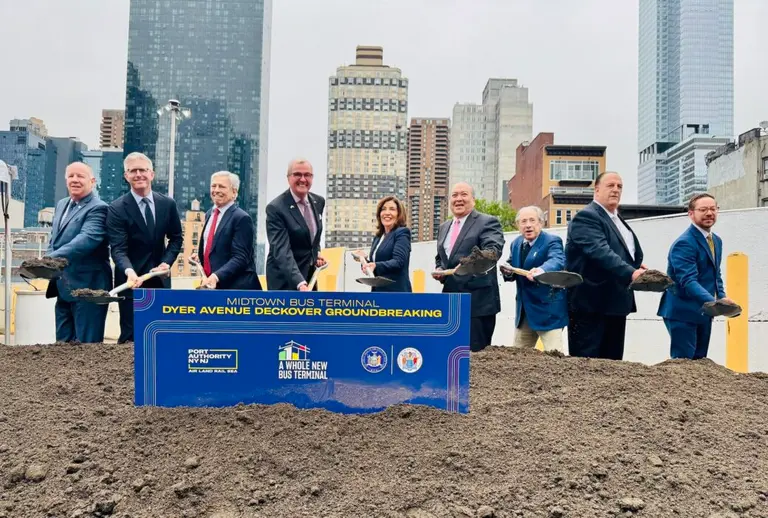The New York Architecture Day Trip: From Colonial to Deconstructivism in Manhattan
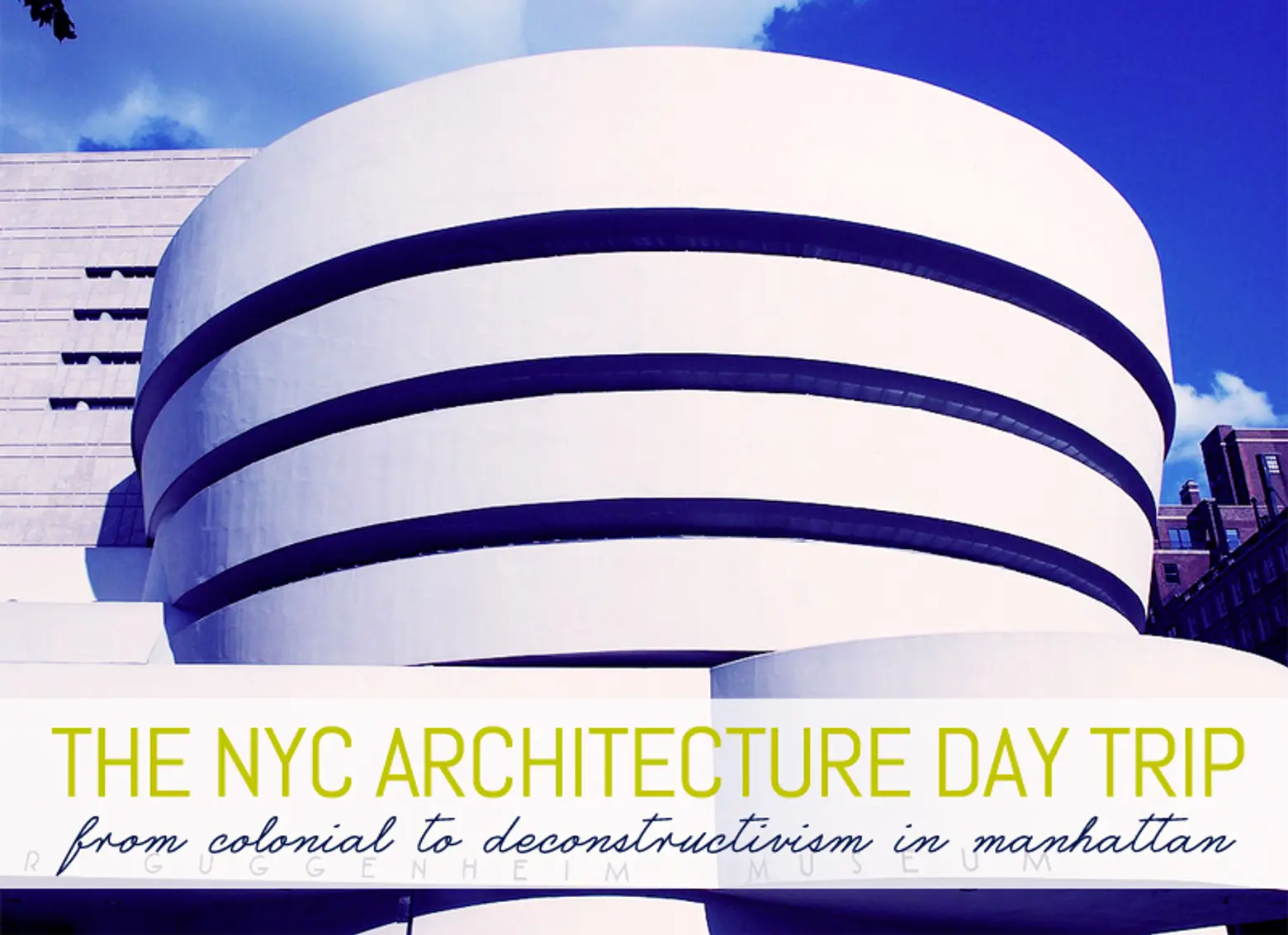
New York has a long history of great architecture. From the very beginnings in the colonial period to today, there are more great buildings to see in New York than anywhere else on the planet. Thankfully, with this guide, you can see them all in one simple south-north trip across Manhattan. Many great buildings are too tall or difficult to see up close, so we’ve chosen an example of each style of New York architecture that can also be appreciated from the ground level, rather than forcing you to gawk straight up at a skyscraper. Check out our New York architecture day trip.
St. Paul’s Chapel – Colonial
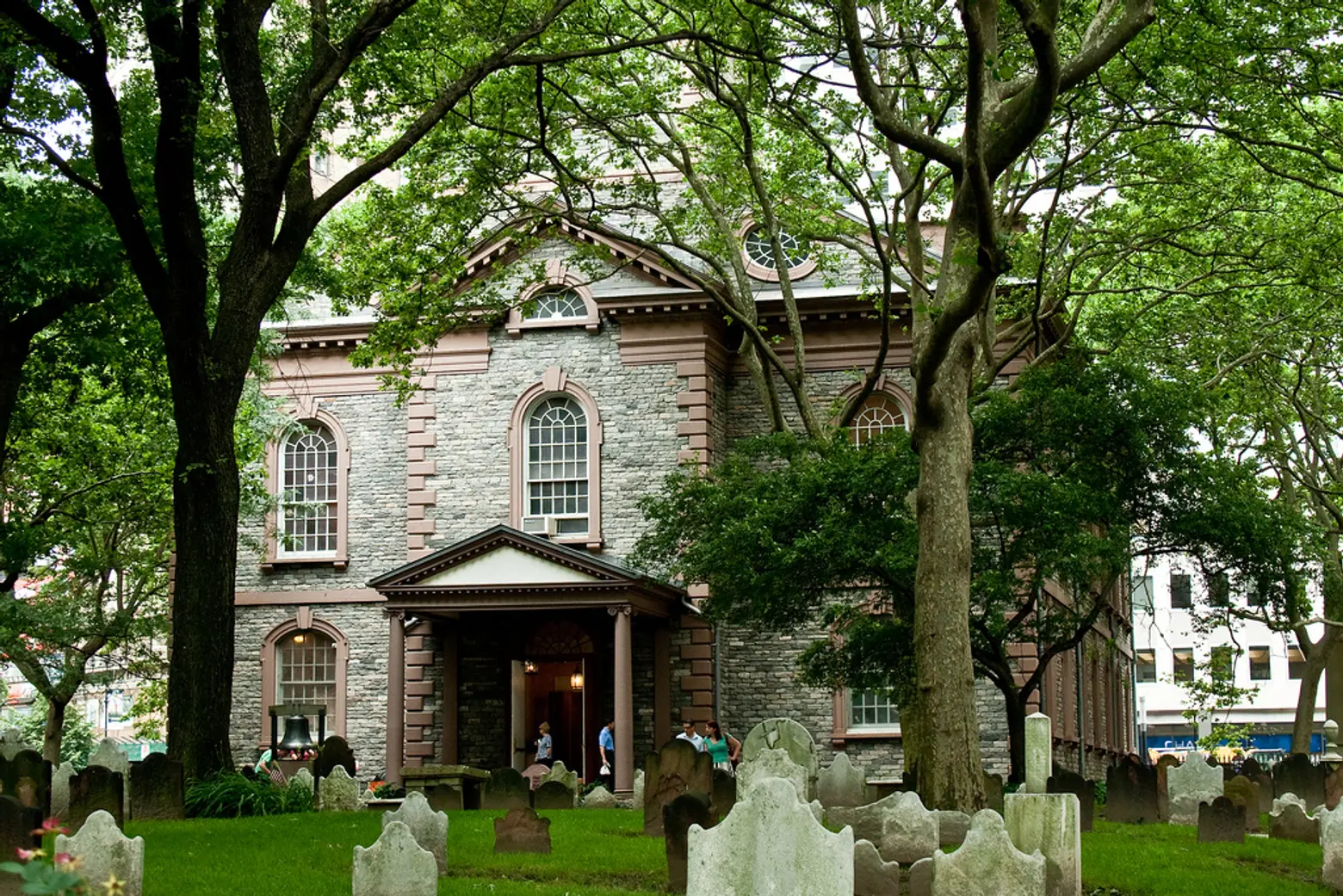
St. Paul’s Chapel in Manhattan, one of only a few structures left on the island built before 1776. Photo credit: eviltomthai cc
Location: 209 Broadway, New York, NY 10007
St. Paul’s is the oldest surviving church in Manhattan, and a terrific starting point for our trip. True Colonial architecture isn’t always easy to find in a city that has rebuilt itself so many times, but St. Paul’s is a tremendous example of the style of the times before American independence.
***
Federal Hall – Neoclassical
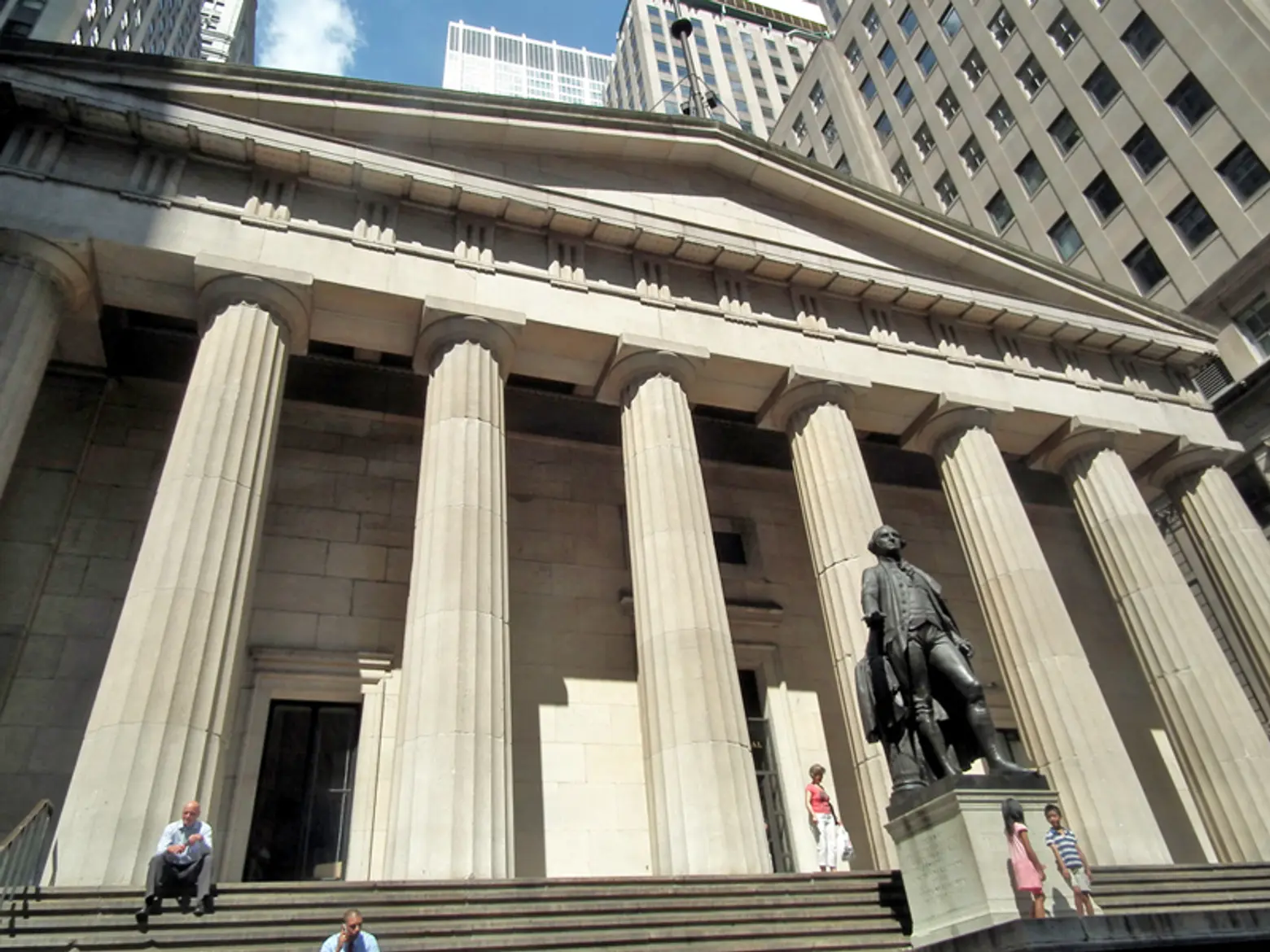 The front of the Neoclassical Federal Hall building. Photo: Erik Daniel Drost cc
The front of the Neoclassical Federal Hall building. Photo: Erik Daniel Drost cc
Location: 26 Wall St, New York, NY 10005
After independence, the United States looked for a new style that could distance them from Great Britain and forge a new way forward for the young republic. That new style they settled on was Neoclassicism, to hearken back to the founding grounds of democracy in Greece. Federal Hall has all the Neoclassical style you would expect from an official building of the time, and the classic Washington statue in front as well.
***
Belvedere Castle – Gothic
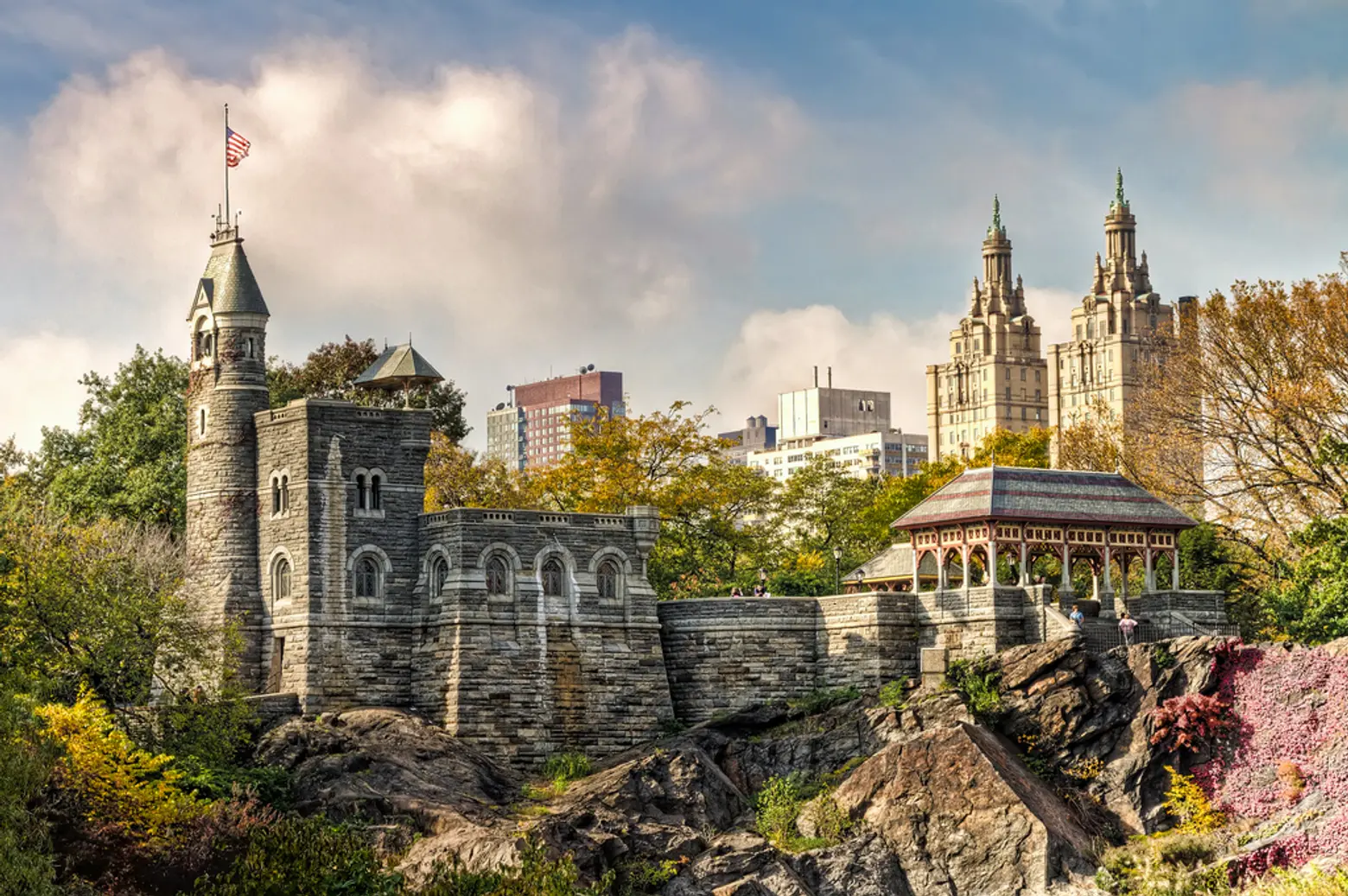
The Gothic-inspired Belvedere Castle in Central Park. Photo: hjjanisch cc
Location: 79th St, New York, NY 10021
In the 19th century, a Gothic revival took hold and brought a new style inspired by the old German architectural style into America and New York. Perhaps the flashiest New York example is Belvedere Castle, overlooking Central Park.
***
Rockefeller Center – Art Deco
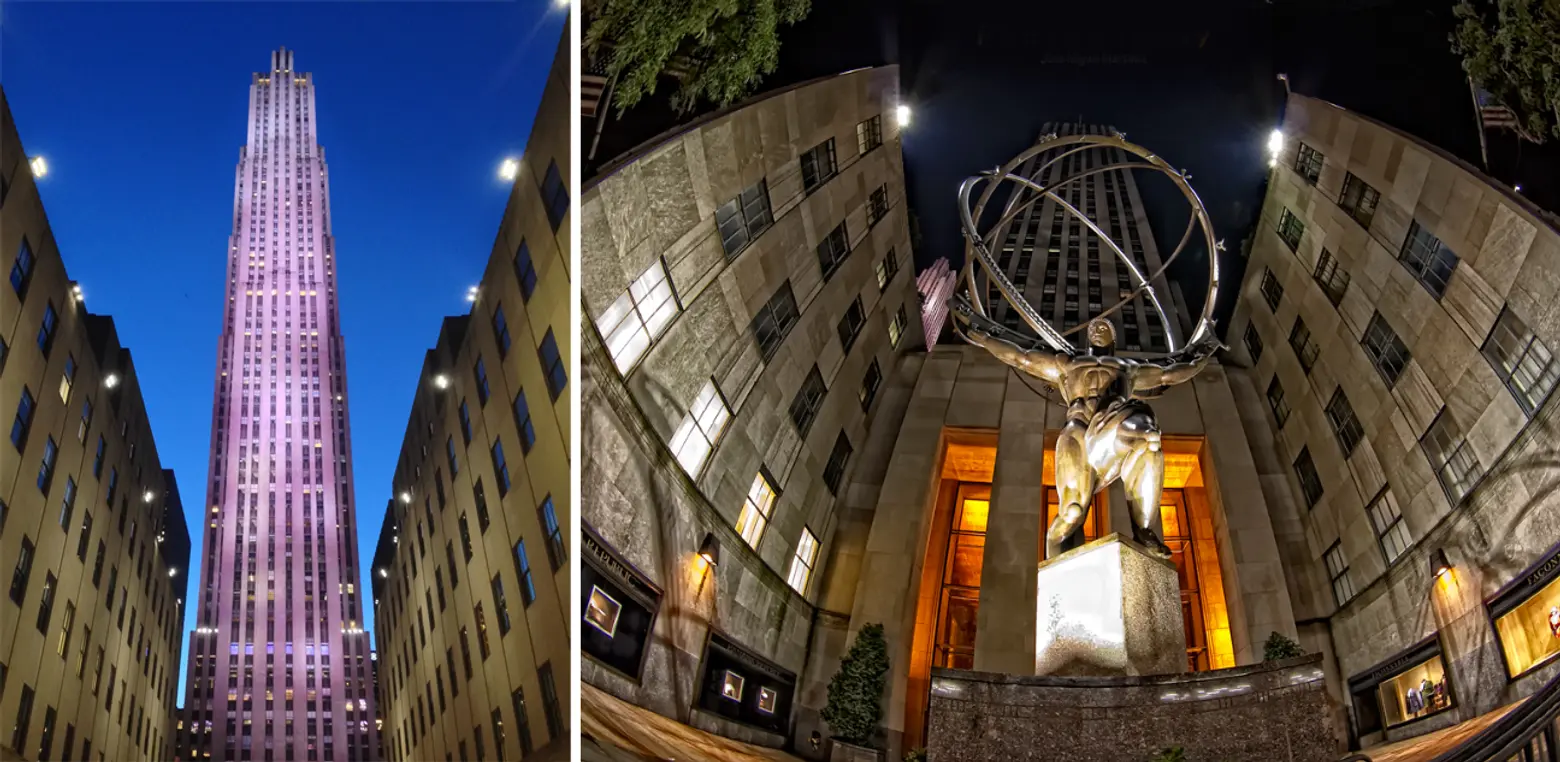 The famous plaza at the Art Deco Rockefeller Center. Image Dain Gordon and Jose Miguel Martinez cc
The famous plaza at the Art Deco Rockefeller Center. Image Dain Gordon and Jose Miguel Martinez cc
Location: 45 Rockefeller plaza, New York, NY 10111
The early half of the 20th century saw Art Deco take over as the style of the day, and New York has too many terrific examples of this style to count. It is almost unfair to only include one example of Art Deco in a New York architecture trip, but the Rockefeller Center does the style proud and has more to look at at ground level than many skyscrapers like the Empire State Building.
***
Guggenheim Museum – Modernism
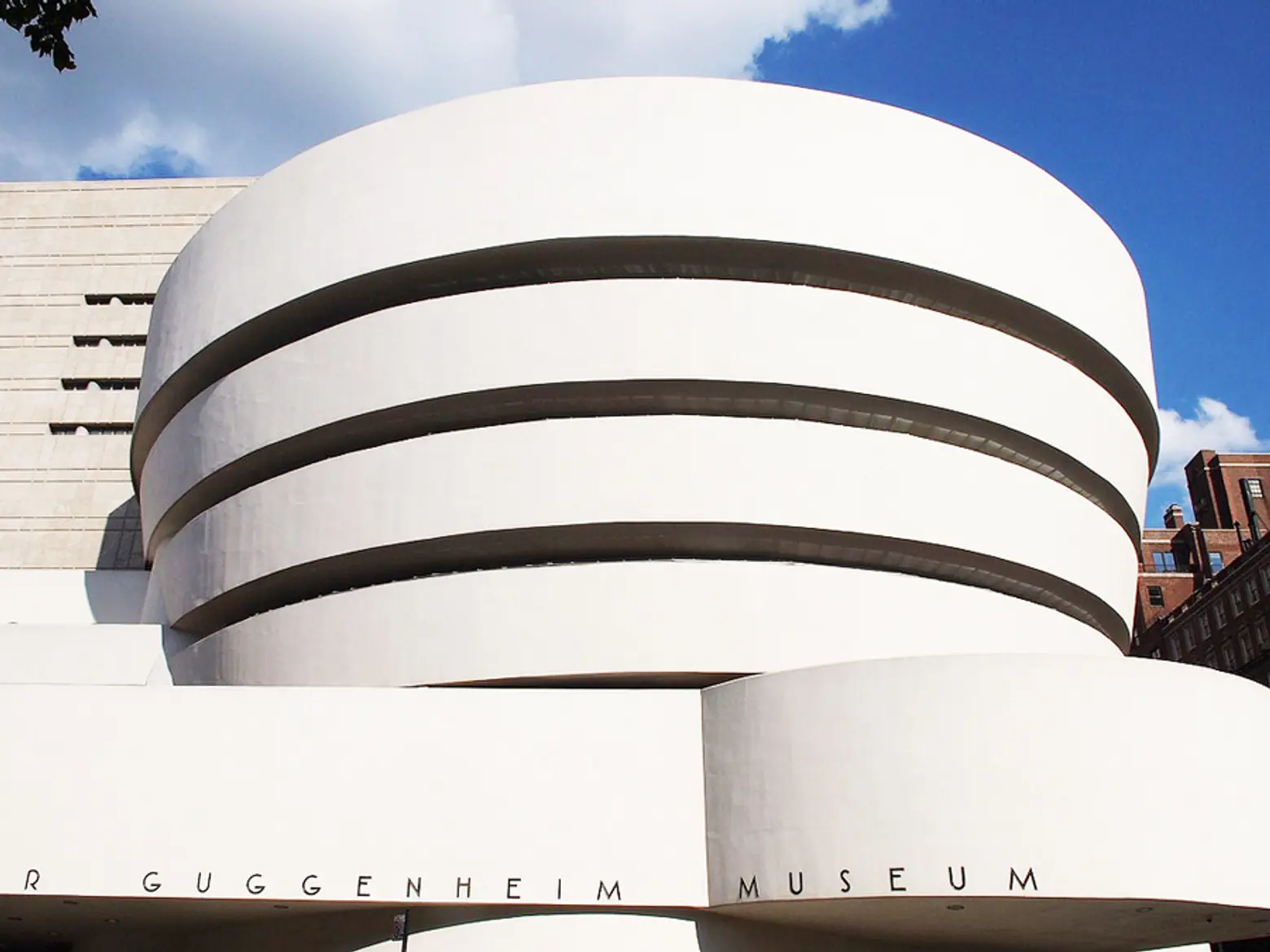
The expressionist circles and waves of the Guggenheim Museum. Image © source
Location: 1071 5th Ave, New York, NY 10128
The soft curves of hard concrete became the enviable style in the middle of the 20th century, and no example is more famous than Frank Lloyd Wright‘s spiral building at the Guggenheim Museum. If this style will ever seem old, it hasn’t gotten there yet.
***
Asphalt Green – Postmodern
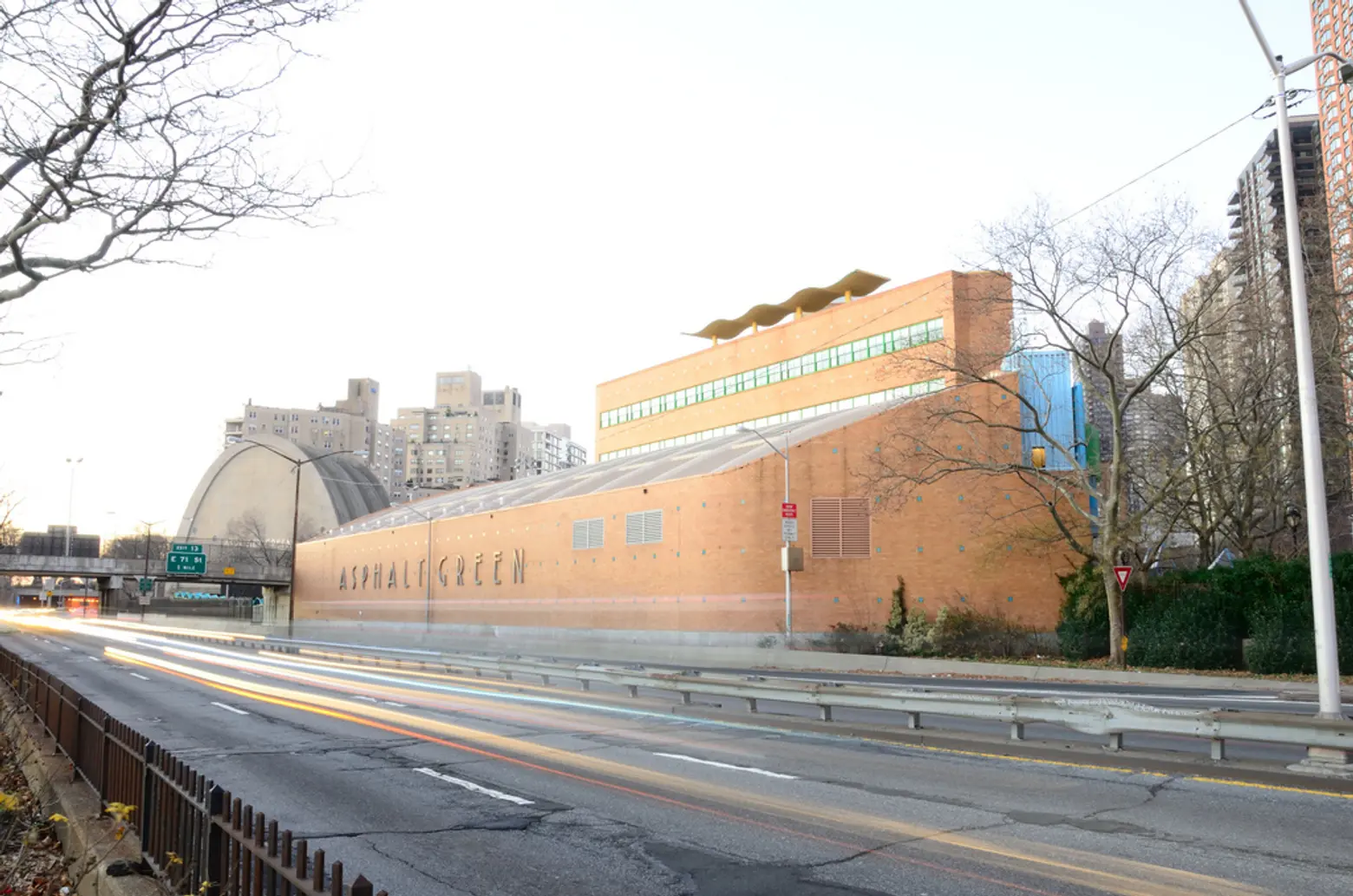 The parabolic arch and main building of the Asphalt Green athletic center. Image © Flickr user Charles Smith
The parabolic arch and main building of the Asphalt Green athletic center. Image © Flickr user Charles Smith
Location: 555 E 90th St, New York, NY 10128
And now for a building that won’t be on your typical NYC bus tour, the Asphalt Green building is a whole complex of postmodern design. The large parabolic arch structure is the most striking and unusual piece of architecture, but all around the building you can find new and incredible sights. The main building, looking like a normal, functional, harsh facade on one end, sports an incredible and complicated facade on the other, with wavy segments of concrete looking out onto the soccer field and park adjacent to it. The complex also sports a 12-foot tall sundial, beautiful but completely impractical for anyone not wearing stilts.
***
Cooper Union New Academic Building – Deconstructivism
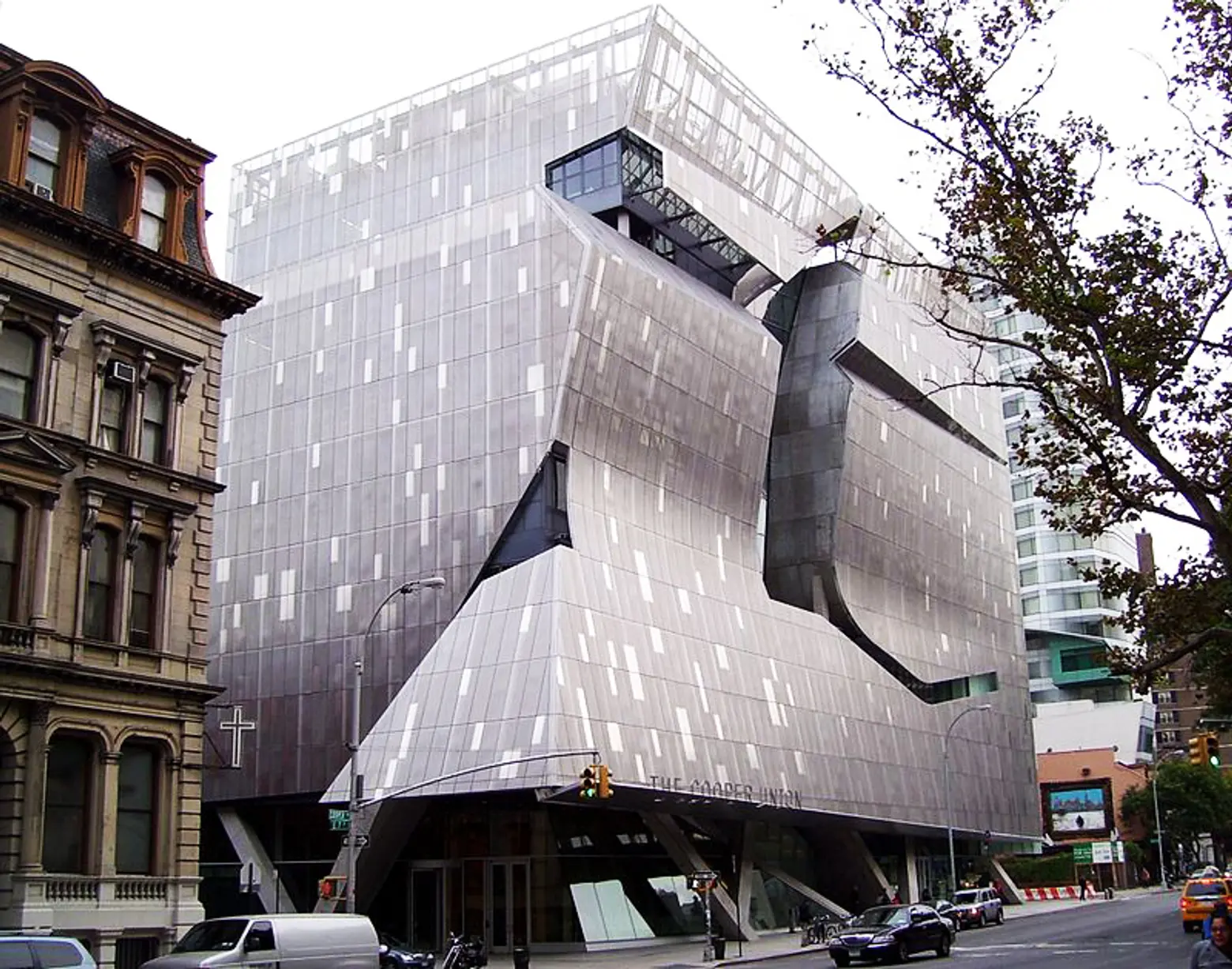
Location: 41 Cooper Square, New York, NY 10003
The Cooper Union’s 41 Cooper Square is a wonderful example of Deconstructivist architecture. Designed by Pritzker prize winning architect Thom Mayne of Morphosis, the building was erected in 2009 and today houses the Albert Nerken School of Engineering with additional spaces for the humanities, arts and, fittingly, the architecture department. The architecture is starkly different than the buildings that surround it, but its fragmented, curved volumes meld well with the energy of its dynamic locale.
